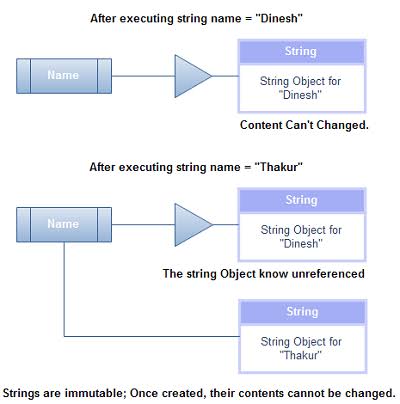Why Are Strings Immutable in Java? Safety and Efficiency Conveniences
Why Are Strings Immutable in Java? Safety and Efficiency Conveniences
Blog Article
What Is Immutable Strings and Exactly How It Works
In the world of programs, understanding the principle of immutable strings is extremely important for creating durable and safe and secure applications. Immutable strings refer to strings that can not be changed after they are produced, making sure data stability and predictability within the code.
The Fundamentals of Unalterable Strings
Immutable strings, as a basic principle in programming, are personality sequences that can not be altered once they are created. This implies that once a string is designated a worth, that value can not be modified. In languages like Python and Java, strings are immutable things, resulting in different ramifications in terms of memory monitoring and information integrity.
Among the essential advantages of immutable strings is that they supply a feeling of safety in information control. Since the web content of an unalterable string can not be customized, it makes sure that the original data stays undamaged, minimizing the threat of unplanned adjustments during program implementation (Why are strings immutable in Java?). This home likewise simplifies debugging procedures, as programmers can rely on that once a string is specified, its value will not be accidentally modified
Additionally, immutable strings assist in reliable memory use. When a new string is developed based on an existing one, as opposed to customizing the original string, the brand-new value is stored independently. This method improves efficiency by reducing memory fragmentation and simplifying memory allowance procedures. Generally, comprehending the fundamentals of unalterable strings is critical for understanding shows principles and maximizing code efficiency.
Advantages of Immutable Strings
Building upon the safety and efficiency advantages of unalterable strings, their advantages prolong to improving code reliability and streamlining simultaneous programming tasks. By being immutable, strings can not be modified after development, which gets rid of the threat of unintended adjustments in the information they save. This integral immutability ensures that once a string is produced, its value remains continuous throughout the program's implementation, lowering the opportunities of bugs brought on by unanticipated changes.
In addition, unalterable strings contribute to code reliability by making it less complicated to reason concerning the state of a program. Considering that strings can not be transformed, designers can trust that a string will always hold the very same worth, simplifying debugging and upkeep initiatives. This predictability results in extra trustworthy and secure codebases.

Implementation in Programming Languages
Within various programming languages, the consolidation of unalterable strings is a fundamental facet that impacts exactly how information is taken care of and manipulated within code structures. The implementation of immutable strings varies across different programs languages, with each language using its very own mechanisms to support this idea.

On the other hand, languages like C and C++ do not have built-in support for unalterable strings. Developers in these languages must by hand apply immutability by enforcing rules within their code to stop straight alterations to string objects.
Best Practices for Dealing With Immutable Strings
When handling immutable strings in shows languages like Java and Python, adhering to ideal techniques makes certain secure and efficient information manipulation. One of the key finest practices is to use StringBuilder or StringBuffer rather of straight manipulating strings, specifically when dealing with extensive concatenation operations. These courses offer mutable options for string manipulation, assisting to stay clear of unnecessary memory appropriations and enhancing performance.
Additionally, when working with delicate data such as passwords or API keys, it is crucial to avoid saving them as ordinary text in unalterable go to this website strings. Utilizing safe and secure storage mechanisms like char varieties or specialized collections for managing sensitive information helps mitigate safety risks associated with unalterable strings.
Real-world Applications and Examples
Discovering functional applications of immutable strings in numerous markets discloses their substantial influence on information stability and system integrity. In the health care sector, unalterable strings play a vital role in making sure the safety and security and privacy of person information. By stopping unauthorized adjustments to delicate info such as clinical documents and prescriptions, immutable strings aid preserve conformity with rigorous personal privacy guidelines like HIPAA.
Banks likewise gain from the unalterable nature of strings to enhance the safety of client information and deal documents. Immutable strings assist stop fraudulence and unauthorized modifications to financial details, providing a robust protection versus cyber hazards and ensuring the depend on and self-confidence of clients.

Verdict
In final thought, unalterable strings are taken care of and stable sequences of characters that provide benefits such as string safety and boosted efficiency in shows. They are executed in different programming languages to ensure information integrity and security. Finest techniques for functioning with unalterable strings consist of avoiding direct modifications and utilizing methods that return brand-new string a knockout post objects. Real-world applications of immutable strings include data security, caching, and string manipulation tasks.
Unalterable strings refer to strings that can not be changed after they are developed, guaranteeing data honesty and predictability within the code. When a brand-new string is produced based on an existing one, instead than customizing the initial string, the new worth is kept independently.In languages like Java and Python, strings are immutable by default, suggesting that once a string item is created, its worth can not be transformed - Why are strings immutable in Java?. Best techniques for working with immutable strings consist of avoiding straight adjustments and utilizing techniques that return brand-new string objects. Real-world applications of immutable strings consist of information encryption, caching, and string control jobs
Report this page